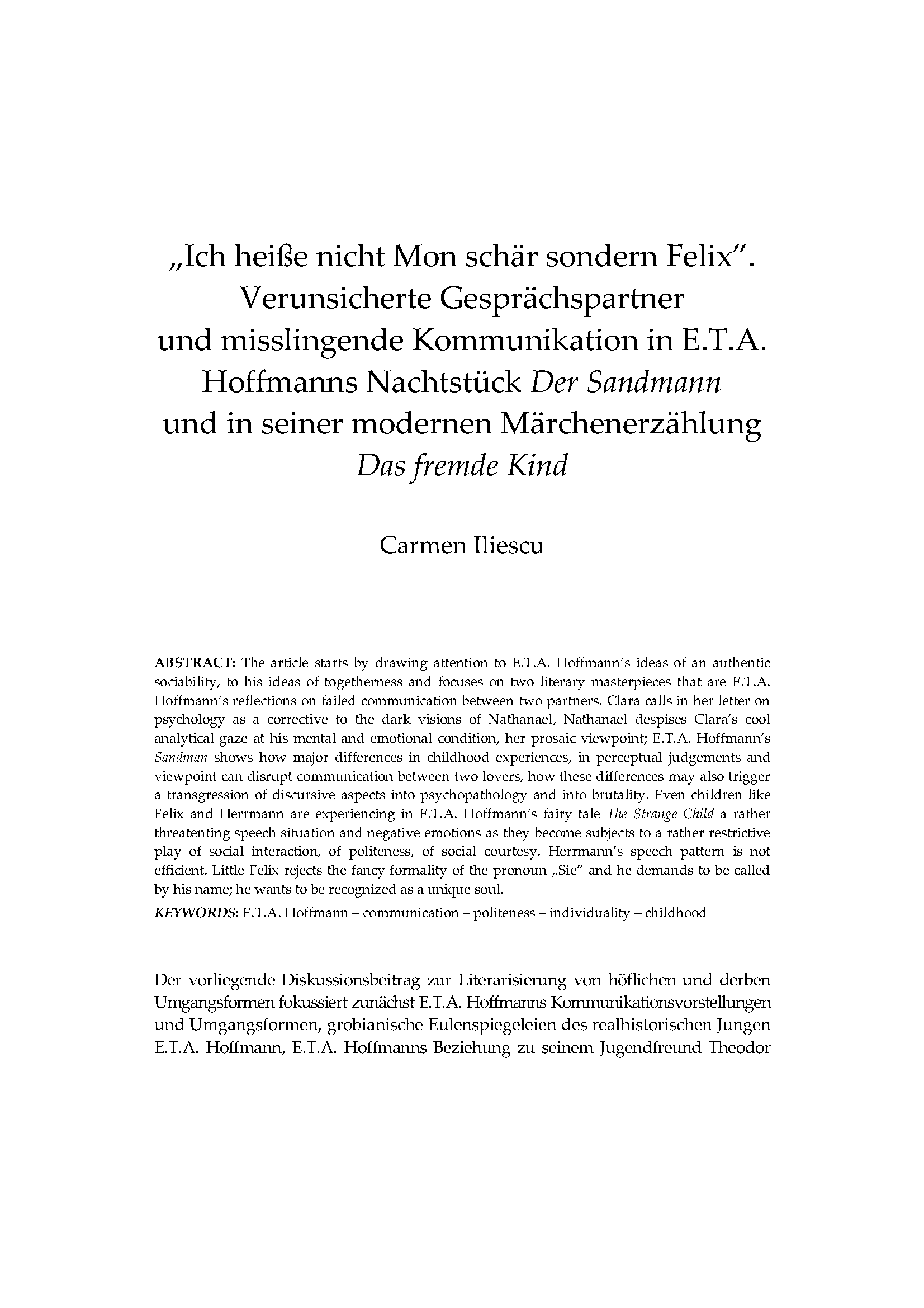„Ich heiße nicht Mon schär sondern Felix”. Verunsicherte Gesprächspartner und misslingende Kommunikation in E.T.A. Hoffmanns Nachtstück Der Sandmann und in seiner modernen Märchenerzählung Das fremde Kind
DOI:
https://doi.org/10.62229/bbzg5-23/3Keywords:
E.T.A. Hoffmann, communication, politeness, individuality, childhoodAbstract
The article starts by drawing attention to E.T.A. Hoffmann’s ideas of an authentic sociability, to his ideas of togetherness and focuses on two literary masterpieces that are E.T.A. Hoffmann’s reflections on failed communication between two partners. Clara calls in her letter on psychology as a corrective to the dark visions of Nathanael, Nathanael despises Clara’s cool analytical gaze at his mental and emotional condition, her prosaic viewpoint; E.T.A. Hoffmann’s Sandman shows how major differences in childhood experiences, in perceptual judgements and viewpoint can disrupt communication between two lovers, how these differences may also trigger a transgression of discursive aspects into psychopathology and into brutality. Even children like Felix and Herrmann are experiencing in E.T.A. Hoffmann’s fairy tale The Strange Child a rather threatenting speech situation and negative emotions as they become subjects to a rather restrictive play of social interaction, of politeness, of social courtesy. Herrmann’s speech pattern is not efficient. Little Felix rejects the fancy formality of the pronoun „Sie” and he demands to be called by his name; he wants to be recognized as a unique soul.





